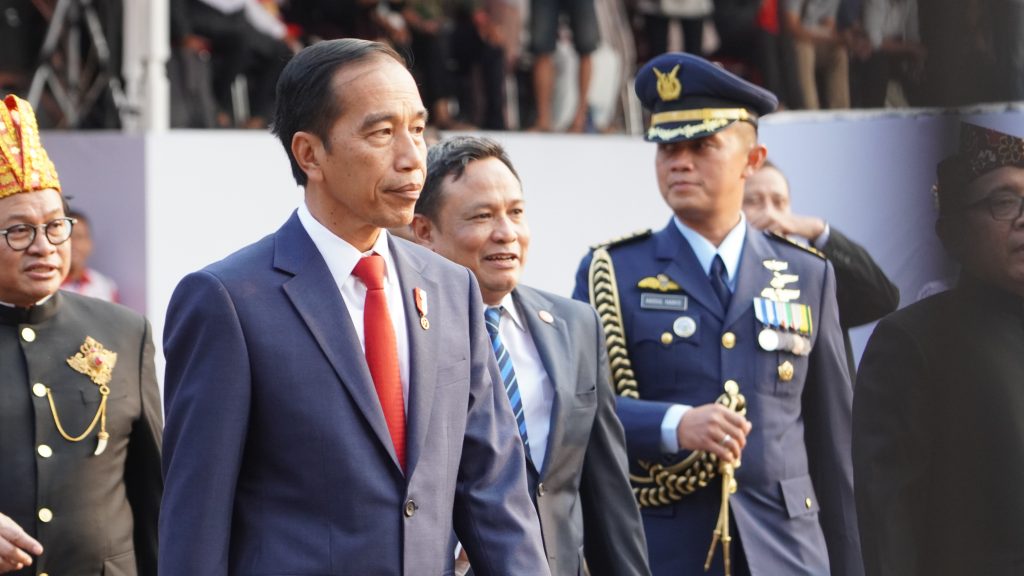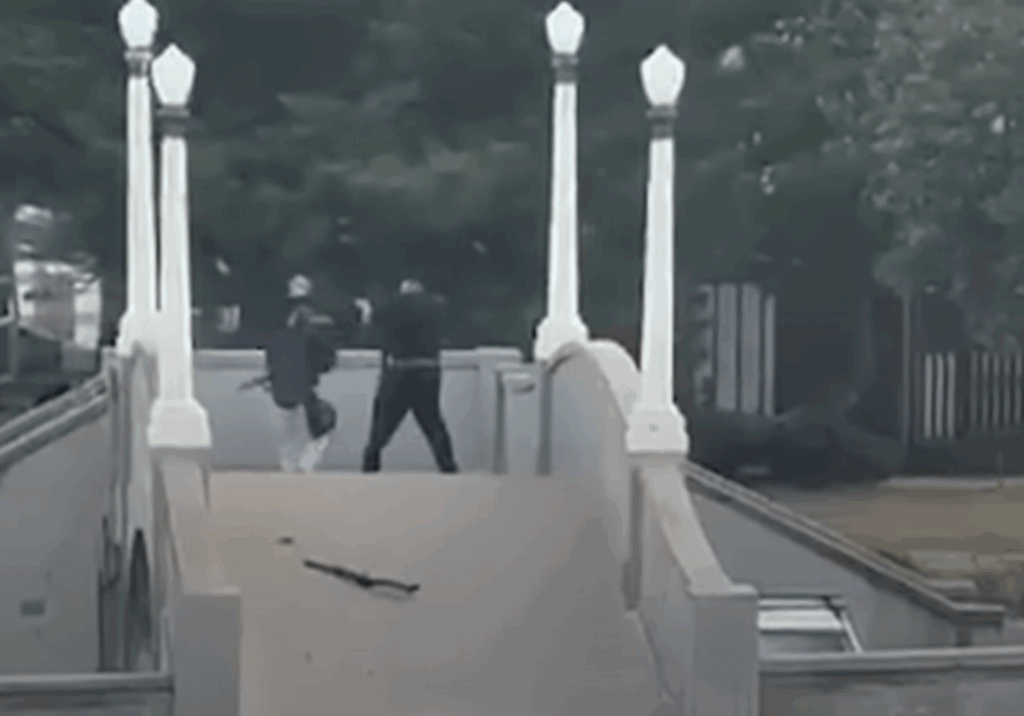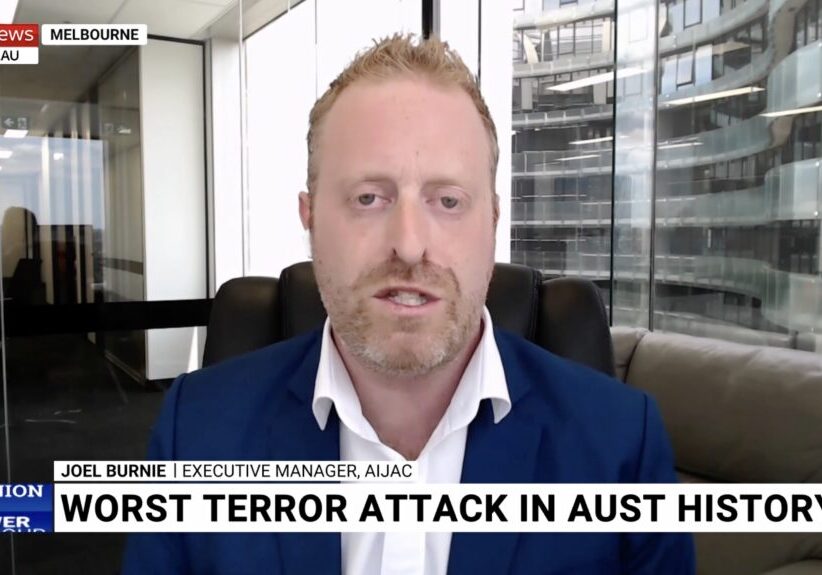Australia/Israel Review
Asia Watch: Unfinished business
Mar 31, 2022 | Michael Shannon

Despite being constitutionally barred from seeking a third term in office, Indonesian President Joko Widodo still has unfinished business.
Long harassed by rivals and opponents with accusations that he is insufficiently Islamic, “Jokowi” has steadily pushed back – not with performative acts of piety but by targeting disruptive, anti-democratic political actors – banning Hizb ut-Tahrir Indonesia and the Islamic Defenders Front (FPI) on the grounds that their ideology is fundamentally in conflict with Indonesia’s founding pluralist credo of Pancasila.
These moves have to be viewed as part of a broader long-term strategy of heading off the reach of Islamist ideology into key national institutions.
Indonesian military and police have now pledged to crack down on personnel who attend religious gatherings involving radical preachers, after President Widodo warned the institutions to improve discipline in their ranks.
Speaking at the annual leadership meeting of the military and police in early March, Jokowi cited cases of soldiers and police discussing government policies in online messaging groups as an example of poor discipline, and emphasised that members must be careful when choosing a preacher to speak at a religious study session.
Amirsyah Tambunan, the Secretary-General of the Indonesian Ulema Council (MUI), a semi-official group of Islamic scholars, backed Jokowi’s order. “The definition is clear,” he said, adding that radical preachers’ sermons lead to “acts of extremism and terrorism.”
In November, Ahmad Nurwakhid, a director at the National Counter-terrorism Agency (BNPT), said militants linked to the outlawed Jemaah Islamiyah (JI) group had tried to infiltrate the Indonesian military, police and government ministries for more than a decade.
The agency has since announced that alleged JI operatives have also infiltrated political parties. Irfan Idris, head of de-radicalisation at the BNPT, said the suspects join such organisations not to launch terror attacks, but to slowly instil their ideology amongst their colleagues.
Two arrests have been made. In February, a newly-joined member of the Ummah Party, founded last year by veteran politician Amien Rais, was one of three alleged JI members arrested in Bengkulu, a province in Sumatra, where he is a well-known preacher. In November, police similarly arrested Farid Ahmad Okbah, chairman of the little-known Indonesian People’s Calling Party, on suspicion that he headed JI’s council of advisers.
Meanwhile, national police chief Gen. Listyo Sigit Prabowo says the Government plans to double the number of personnel in the Densus 88 anti-terror unit in response to the evolving threat. While police have arrested close to 900 JI members since the 2002 Bali bombings, they warn that the number of members and sympathisers was estimated to be 10 times as many, with 67 JI-affiliated religious schools suspected to be breeding grounds for militants.
JI, which was outlawed in 2008, has not staged a major attack since 2011. And yet, Indonesian police said they arrested 339 suspected militants in 2021, an increase of 56% compared to the previous year. Police also killed 18 militant suspects last year.
Pushed into the background by the concerted government crackdown and the emergence of the Islamic State (ISIS), an organisation it was strongly opposed to, JI appears to have come to the conclusion that violence was not the way to achieve its objective of a universal caliphate, Sidney Jones of the Jakarta-based Institute for Policy Analysis of Conflict told the Asia Times.
“They (JI) decided that what needed to be done was to think through how to gain power in Indonesia,” she said. “It soon became clear that the more effective way… was to operate as a coalition with a division of labour and use local elections and local regulations to try and move the country towards a more Sharia-influenced polity.”
Although JI has survived and periodically regenerated, the Widodo Government’s crackdown has arguably been deeper and more extensive than any in the past.
Jokowi’s strategic moves against Islamist forces stem largely from the period of his second presidential election victory in 2019. He won crucial support from the mass Muslim organisation Nahdlatul Ulama, whose ranks number up to 90 million, in return for nominating its ageing supreme leader Ma’ruf Amin as his running mate – enabling his victory over opposition candidate Prabowo Subianto, despite losing heavily in West Java, home to many of the country’s hardline Islamists.
Despite his open flirtation with Islamists and encouragement of violent protests over alleged voting irregularities, Prabowo abruptly reverted to his nationalist roots, joined the governing coalition and secured the role of defence minister, leaving the opposition benches to a small rump lead by the Islam-oriented Prosperous Justice Party.
With his approval rating currently around 70% despite two years of COVID-related upheaval, Jokowi has the political capital to further defang the Islamist bloc.
Tags: Asia, Indonesia, Islamic Extremism






